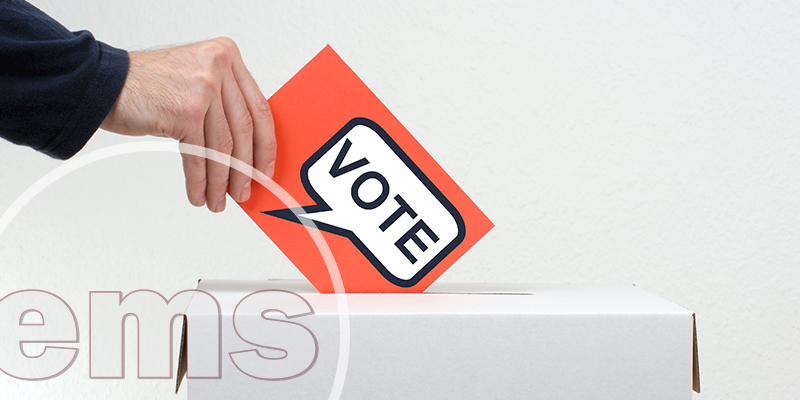HOA (Homeowners Association) voting rules – Google Search
5 HOA Voting Rules to Know for Board Elections – Page Per Page
There are certain legal requirements that guide how an HOA board election will be carried out. Without adopting these requirements in the bylaws, liability can creep in and threaten the legitimacy of your election results. With that said, here are 5 HOA voting rules that your association should be aware of before carrying out an election.
1. Required Notices
Notices are an essential part of the anatomy of an HOA. From assessment reminders to violation notices, they aid with bylaw compliance and keep homeowners informed. Election notices are equally important and may be required by the state. Giving homeowners information about an upcoming election may also increase turnout and drive greater community participation.
Notice of an impending election typically must:
- Be provided at least 30 days prior
- Be sent by mail, even if online voting is an option
- Include detailed voting instructions within the notice itself
- Include the date, time and place the voting is taking place
2. Nomination Procedures
After homeowners have received notice of an upcoming election, clear rules for nominating candidates will be needed. These HOA voting rules describe how to nominate yourself or someone else, while laying out objective qualifications that candidates must meet. This protects an individual’s right to self-nominate. It also ensures that candidates must be of a certain caliber for the greater good of the neighborhood.
For example, some associations require that candidates:
- Must be a member of the association
- Must have satisfied all payments and fines
- Must not have had any criminal convictions in a specified period of time
- Must submit a resume and any other relevant materials upon receipt of the election notice, so that voters can review these documents
- Must be vetted and approved by a nominating committee, if one is in place
3. Campaigning
While there may be rules around who can be nominated, many HOAs have strict provisions for how a candidate, once nominated, can campaign for their position. You’ll need to adopt rules to govern a candidate’s access to:
- Association media, including:
- Social media pages and groups
- The HOA website
- HOA newsletters/circulated print materials
- Homeowner mailing list
- Neighborhood common areas (for gatherings/speeches)
- HOA meetings (to address homeowners)
4. Ballot Procedures
Once campaigning has wrapped and homeowners are ready to cast their vote, a clear set of HOA ballot procedures will be needed. Some states impose requirements around balloting, such as the use of mail-in paper ballots even when online voting is available.
The use of secret ballots is another common state requirement to look for. In this case, secret ballots or tear-away secret ballots may be mailed to each homeowner with an envelope that they can anonymously send back to the association.
Consider how you can use ballot accessibility to drive up voter participation. You’ll want to give homeowners more than one way to submit a vote, so long as each option is in compliance with the bylaws.
Common voting options include:
- Voting booths – Homeowners can come to a specific location at a designated time to cast their vote.
- Mail-in paper ballots – Either secret or non-secret ballots can be mailed to each homeowner, then mailed back to the association.
- Electronic voting – Homeowners can vote on-the-go with an online voting platform, like Association Vote. HOA online voting can help you revive previously low turnout rates thanks to its ease of use.
5. Uncontested and Recall Elections
Part of managing an election is preparing for any situation. That’s why it’s important to have HOA voting rules surrounding uncontested candidates and elections that need to be recalled.
Uncontested Elections
If you have one candidate running for one available position, do you need to hold an election? This is where detailed voting rules come in handy. In short, yes, you should still require that an election must take place. Floor nominations still make it possible for a position to be contested. It’s also important to note that even in the case of an uncontested election, secret ballots may still be required, depending on the size of your community.
Recall Elections
A recall vote is a demand to reconsider the outcome of an election, usually as a result of an allegation against the elected member. You can create bylaws to address this situation, but be sure that they don’t interfere with state law.
Rules to consider would be:
- Requiring a signed petition to hold a recall meeting.
- Having detailed voting requirements for recalling the contested board member. For example; voting by secret ballot to remove a board member, then giving the ability to block the removal.
- Requiring specific notices to keep homeowners informed of board member allegations or discussions of recall.
- Creating nomination procedures and requirements to prevent a similar situation from occurring.
Manage Seamless HOA Elections with Page Per Page
The details of sending ballots and receiving votes vary by state and can often add complexity to your role overseeing an election. That’s why Page Per Page is a great resource to help you to meet state and bylaw requirements. Page Per Page is a print and mail company that specializes in community associations.
From secret ballots and election notices, they can print and deliver all necessary election documents to your homeowner’s doorstep. This printing and mailing expertise is the perfect compliment to their HOA online voting solution, Association Vote, which gives homeowners the option to cast their vote on their own time. Contact Page Per Page today to gain the ultimate partner for streamlining your HOA board elections.
Cover photo created by rawpixel.com – www.freepik.com
_______________________________________
HOA Board Election Rules: Ensuring A Fair & Successful Election | HOAM

Every homeowners association requires a set of rules to serve as a guide for their board elections. But, coming up with these exact HOA board election rules can come as a challenge.
Creating Your Own HOA Board Election Rules
The law requires homeowners associations to have and follow a set of election rules. You will typically find general rules within your governing documents, specifically the community bylaws. But, you also need more specific HOA board election rules to serve as a guide for your association. These rules are then considered part of your operating rules.
A lack of election rules could put your association at risk of potential liability. Additionally, failure to follow these rules can result in the overturning of your actions as an HOA board.
It is important to know that there is no standard set of rules for every association. These rules can vary, and each association requires its own collection of HOA board election rules. When drafting your rules, make sure to check your state laws and governing documents to ensure no conflict arises. It is best to have your HOA attorney oversee the creation or amendment of these rules.
Furthermore, since election rules are deemed part of your operating rules, the board typically does not need approval from the membership to create or amend them. Still, the board is bound by certain requirements laid out in state laws and the governing documents.
For instance, if you need to change the rules, you must notify homeowners of the proposed change ahead of time. The notice requirement will vary from association to association. In California, for example, HOA boards must provide 28 days’ notice of a rule change prior to making it.
What to Include in Your HOA Board Election Rules
No two associations are the same. The rules of one association may vastly differ from another’s. Yet, there are some general rules for the HOA election process that all associations will benefit from. If you need help creating or amending your HOA voting rules, here are the points you should consider adopting:
Candidate Qualifications
Your HOA board election rules should establish candidate qualifications. One of the most obvious and mandatory qualifications, of course, is that the candidate must be a member of the association at the time of their nomination. Some associations even go as far as requiring candidates to have been a resident for at least a year. There are also others that disqualify candidates if they have any unpaid dues.
Other reasonable qualifications to become a director include but are not limited to:
- No current violations of the governing documents
- Not involved in legal issues with the HOA
- Not related to any existing board member
- No past felony convictions
Nomination Procedures
 The election rules must also indicate the candidate nomination procedures. These procedures can include:
The election rules must also indicate the candidate nomination procedures. These procedures can include:
- Floor Nominations. Though generally not required by law, your governing documents may allow floor nominations. These take place during the meeting after a quorum has been established. Once the president opens the floor for candidate nominations, members in good standing can nominate other members and no second is necessary.
- Write-In Candidates. Depending on state laws and your governing documents, you may allow write-in candidates. California, for instance, allows associations to permit write-ins unless their governing documents say otherwise.
- Self-Nominations. Associations generally can’t prohibit members from nominating themselves as candidates. Though, they must still meet the candidate qualifications.
Equal Access to Association Media
Campaigning is often difficult without the media resources of the association. As such, you should consider providing candidates access to association media during HOA elections. If you grant access to one candidate, though, you must grant access to all candidates for fairness. Association media can include HOA websites, newsletters, and the like.
Should candidates use association media, you may not edit or remove any content from their campaign materials. But, you may include a disclaimer stating that the association is not responsible for the content and that responsibility rests upon the candidate alone.
Equal Access to Common Areas
Candidates may also need to use common areas and meeting spaces within the association for campaigning purposes. In that case, you must include a rule that allows all candidates equal access to these areas and spaces. Your HOA must not charge the candidates to use these spaces as well.
Voting Qualifications
As part of your HOA or condo voting rules, you must indicate voting qualifications. Explain the voting power of each association member as well as the validity of their vote. You must also describe the effect of proxies if your HOA uses them. Other than that, your HOA board election rules should clearly state the period for voting. This includes the start and end dates as well as the opening and closing times of the polls.
Election Inspectors
Not all state laws may require election inspectors, but some do. In the case of California, associations must have an inspector of the elections when using secret ballots. The HOA election rules must define how election inspectors are chosen. The board can appoint the inspector, have members elect the inspector, or adopt other means of selecting the inspector.
The inspector/s of the election must then have the ability to appoint additional persons to count the votes and authenticate signatures. But, to do so, the inspector/s must be an independent third party.
Voter List and Candidate List Accuracy
Your association’s board election rules must mandate the retention of a voter list and a candidate registration list. The HOA must then allow members to check their individual information for accuracy prior to the distribution of the ballots. The exact period will depend on state laws and the association’s governing documents. For instance, in California, the HOA must allow members to verify the accuracy of their information at least 30 days prior and report any discrepancies within 2 business days.
The voter list must include the following details:
- Name
- Voting power
- Separate interest’s physical address
- Parcel number
- Mailing address for the ballot
Ballot and Rule Delivery
Associations must not deny any member of a ballot. If they own a separate interest in the HOA, then you must allow them a ballot and count their vote (provided they submitted the ballot on or before the deadline). The same goes for a person with a general power of attorney for a member.
Download your free editable voting ballot here.
Your election rules should also require the election inspector to deliver the ballots as well as a copy of the HOA board election rules prior to the election (at least 30 days in California). Ideally, the delivery method used shall be individual delivery accomplished via postal mail.
Can an HOA Endorse a Candidate?
 During the election period, it may become clear to you that a particular candidate is best suited for the job. But, you must never endorse a specific candidate for a position on the board.
During the election period, it may become clear to you that a particular candidate is best suited for the job. But, you must never endorse a specific candidate for a position on the board.
To ensure a fair election process, you must remain a neutral HOA board. That means exhibiting no personal bias or favoritism, even if it is glaringly obvious to you that one candidate stands out from the rest. You must allow homeowners to form their own opinions and simply trust in their good judgment.
Similarly, you should never speak ill of any candidate. Keep your thoughts to yourself even when asked by a member. But, that does not mean you can’t respectfully correct a candidate if they provide false information. Just remember not to criticize them or go after their character.
These points don’t just apply offline, though. Never badmouth or endorse a candidate on your social media pages or through other online communication channels. If a member posts on their Facebook page that they are voting for a particular candidate, refrain from liking or commenting on the post, too. That can be misconstrued as an endorsement.
HOA Boards Need Help, Too
HOA board election rules are essential if you want to hold fair and smooth elections. These rules tell you what you can and can’t do come election time, allowing for a standardized and consistent procedure every time. Adopting and enforcing these rules, though, can be difficult without professional help.
The road to hiring the best HOA management company begins with us. Using our online directory, you can start looking for the best one in your area today.
RELATED ARTICLES:
HOA Voting: A Guide For Board Members And Homeowners | EMS

When it comes to HOA voting, not all homeowners associations have it down pat. Some still struggle to standardize their procedures and hold seamless elections. This is where a guide will come in handy.
The Importance of HOA Voting
Homeowners associations are run by a set of board members collectively known as the HOA board. While they can also be appointed, most associations elect their boards. Each board position has a term limit. And when the member reaches the end of their term, their position opens up, and the HOA must hold another election to fill the available post/s.
Homeowners association voting, though, isn’t limited to board member elections. Aside from electing and removing board members, most associations must hold a vote before amending their governing documents. In general, association boards also need to secure a majority vote from the membership prior to levying special assessments or increasing regular dues.
The exact circumstances that would necessitate a vote can change, though, depending on your location and your governing documents. For instance, Arizona law requires HOAs to get majority approval from the membership for an increase of more than 20 percent of the previous year’s dues. Meanwhile, no such law exists in some other states.
Not all board actions require a vote from all homeowners. In fact, a number of resolutions only need a vote from the board. But, for more important actions that will impact the entire community, approval from members is necessary. Voting ensures a level playing field and allows homeowners to have a say in association matters.
What Are HOA Voting Rules?
State law typically requires homeowners associations to establish election or voting rules. You will find these rules within your governing documents, particularly the bylaws. These rules should also be compliant with federal, state, and local laws to remain valid. Without a written set of rules, the board and the HOA itself run the risk of liability.
There is no universal set of voting rules that can apply to all HOAs. Every association is different and will usually require its own, unique set of rules. Aside from adhering to the law, HOA voting rules must also not conflict with other provisions in the governing documents. A lawyer can help your board draft your election rules and see to it that it doesn’t clash with existing laws and bylaws.
What to Include in HOA Voting Rules
So, what should your voting rules contain?
- Nomination Procedures. This explains how candidates can be nominated.
 Candidate Qualifications. When writing candidate qualifications, it’s important to be precise in your wording. For instance, you can indicate that candidates must have no outstanding debt towards the association.
Candidate Qualifications. When writing candidate qualifications, it’s important to be precise in your wording. For instance, you can indicate that candidates must have no outstanding debt towards the association.- Campaigning Rules. How can candidates go about campaigning? Where can they do it? This should also outline the candidate’s access to HOA media, such as the association’s mailing list, newsletter, community website, and the like.
- Ballot Procedures. This tackles how homeowners can vote using their ballots.
- Voting Power. Will it be one vote per unit or does each person from a single household get a vote?
- Proxy Rules. This explains how homeowners can use proxies to vote on their behalf.
- Voting Period. How long do homeowners have to cast their vote?
- Other Rules. Other rules include how the association will deal with certain circumstances such as a tie, uncontested elections, and recall elections.
Boards should ensure that they follow all voting rules to the letter. If homeowners have to vote by a certain date, give yourself enough time to send out the ballots and any other forms necessary. You should also allow ample time for candidate nominations and campaigning before the actual elections. Remember that an attorney can provide immense help should your board find itself in a bind.
What Is a Quorum?
Boards might wonder how many owners should show up to a vote to deem the election legitimate. But, it depends on the HOA. To proceed with a vote — any vote — a homeowners association must first establish a quorum.
A quorum is simply the minimum number of people an association requires to conduct business. There is no number that fits all communities. Instead, it varies from one association to another. You will find your HOA’s quorum requirements written in your governing documents.
If an HOA fails to meet a quorum, it can’t proceed with any actions. Any vote it takes during the meeting is deemed invalid and, therefore, not legally binding. For instance, if an HOA needs at least 30 homeowners to proceed with a vote, 29 won’t cut it. Should the HOA vote to increase dues, homeowners can challenge the validity of the increase since the association failed to meet the required quorum.
The quorum requirement is not always stated in hard numbers. More often than not, an HOA’s bylaws will require a percentage of the total membership to constitute a quorum.
All About HOA Proxy Voting
Many homeowners associations allow members to vote by proxy. Proxy voting simply means letting someone else vote on your behalf. This method of voting can have a huge benefit to the association because it allows homeowners to still participate in a vote even when their schedule prevents them from being physically present.
Does a proxy count towards a quorum? It depends on your association’s governing documents. Generally, proxies do count towards a quorum, allowing the association to conduct business without everyone attending the meeting. It is worth noting that proxies do have to attend the meeting to be considered part of the quorum.
An HOA voting proxy form is a legal document that homeowners use to delegate their right to vote to another person. Unless the law or the governing documents say otherwise, homeowners can pretty much appoint anyone as their proxy. Make sure your proxy form has an explicit statement from the owner appointing another named party as their proxy. The form should also bear the owner’s signature.
Available Methods for Voting
There are a number of voting methods an HOA can use, though the exact ones available to you will depend on what your governing documents authorize. Apart from voting by proxy, HOAs can use the typical ballot or opt to go with a secret ballot.
The ballot method is simple and straightforward. Homeowners must complete a ballot that consists of their names and other details as well as the person or item they are voting for. In contrast, a secret ballot keeps the identity of the voter hidden. Both types of ballots are typically physical and must be mailed or submitted in person.
Alternatively, associations can choose to make use of technology for their voting procedures. If state laws and your governing documents permit, you can utilize HOA voting online tools or services to allow for remote participation. The number of votes you receive will simply act as a way to establish a quorum. For instance, if you receive only 10 votes but require 15 to meet a quorum, then the vote will not count. Even if homeowners intend to abstain from the vote, it is necessary to encourage them to fill out the online ballot.
Do Renters Have a Right to Vote?
Most HOA communities only allow association members (i.e. homeowners) to vote. Renters don’t receive voting rights. But, there are instances when a homeowner can’t make it to a meeting and sends their tenant to vote on their behalf. In this case, the homeowner would need to complete a proxy form transferring their voting right temporarily to their tenant.
Voting Failure: What Now?
The requirement for a vote to pass can vary from one community to another, even from one issue to another. For example, a vote to approve a special assessment might only need more than 50 percent of the votes, while a vote to remove a board member may require a two-thirds majority.
 It is not uncommon for an HOA to encounter a voting failure. This can happen if the association fails to reach a quorum or if it fails to secure the appropriate number of votes. The difference between the two scenarios is that voting actually transpired in the latter. If no quorum is met, the vote doesn’t proceed at all.
It is not uncommon for an HOA to encounter a voting failure. This can happen if the association fails to reach a quorum or if it fails to secure the appropriate number of votes. The difference between the two scenarios is that voting actually transpired in the latter. If no quorum is met, the vote doesn’t proceed at all.
When this happens, the association can set another date and, hopefully, meets the required quorum then. Apart from sending the required notices, boards should make every effort to advertise the meeting and upcoming vote to increase their chances of reaching a quorum.
If the HOA fails to secure the appropriate number of votes, then the resolution won’t pass.
Don’t Be Afraid to Ask for Help
The rules on HOA voting can certainly be challenging to understand, especially if you have a relatively new community. And state laws and your governing documents may not provide you with sufficient guidance. In this case, it may be best to seek professional help from an HOA management company.
Elite Management Services offers HOA management solutions to planned communities and condominiums. Call us today at (855) 238-8488 or contact us online to learn more about our services.
RELATED ARTICLES:
July 2021
An HOAleader.com reader asks: “Do you see any issues with having community volunteers (presumably selected by the board president) personally presenting ballots (knocking on doors) and collecting individual votes from homeowners on a very intense community issue?
“Historically, the HOA would always send ballots out through U.S. Postal Service, but not for this particular issue. These volunteers have been instructed to not leave ballots with homeowners (if not completed), and they’re not putting the completed ballots in envelopes unless the owner requests privacy. Volunteers have been provided with a list of ‘challenging’ homeowners as well. Are there any issues (legal or otherwise) with this approach?”
Let’s first note that, as a general rule, door-to-door political canvassing is a form of speech, something that’s protected in the United States. “In general, we don’t want to impose too many restrictions on a person’s right to go door to door, at least to campaign, because of the right to free speech,” notes Andrea L. O’Toole, a community association lawyer for 15 years and the founder and shareholder at Andrea L. O’Toole PC in Lafayette, Calif.
So what can and can’t be done when it comes to canvassing? Here, our experts discuss when canvassing is OK and offer tips for how to do it with integrity.
The Nuances of Canvassing
Problems with the postal service? Our reader doesn’t mention that specifically, but it’s something experienced by Katie Anderson, PCAM, AMS, CMCA, the founding owner of Aperion Management in Bend, which manages nearly 70 condo, HOA, and townhome associations throughout Oregon.
“We’ve seen a huge impact because of delays with the USPS, whether with owners receiving communications or with them sending payments to us,” she says. “That’s probably the number-one issue we deal with as a company, and canvassing can bridge that gap in trying to engage people.
“A lot of our governing documents allow for boards to canvas to achieve quorum or thresholds of amendment votes,” adds Anderson. “It’s not uncommon.”
Nancy T. Polomis, a partner at Hellmuth & Johnson PLLC in Edina, Minn., whose clients include local and national residential builders and developers and condos and HOAs throughout Minnesota, says ballot collecting at owners’ homes isn’t permitted in her state. “In Minnesota, you can’t collect ballots door to door,” she says. “Owners either vote at a meeting or by mailed ballot. So if someone walked into a meeting with 40 ballots, those ballots wouldn’t be counted. That’s different than if they walked in with 40 proxies; in that case, they’d get 40 ballots to cast.”
In California, there are few reasons to canvass for votes because of the state’s mail-in ballot system for elections and other owner votes, says O’Toole. “When we have membership votes, they’re almost all conducted with a process similar to voting absentee; it’s a secret-ballot process. There are few situations in California where you’d have members vote that you wouldn’t use that process.”
That said, boards can encourage voting by doing canvassing. “Can the board take blank ballots to owners’ doors and try to convince people of their position and to vote?” asks O’Toole. “There’s nothing to prohibit that. But boards have to give that ability to anybody who asks. It can’t just be the board who does that. Also, some community association rules will say you can’t do that; owners can get a ballot only from the inspector of the election; the inspector won’t give a handful of ballots to anyone to go door to door.
“If it were my clients, and if this were a really political issue that’s being voted on, I’d tell them to feel free to go door to door to politic and to send out mailers, but just don’t touch the ballots,” she explains. “You can encourage people to contact the inspector to get a ballot. Doing otherwise just gives rise to potential challenges and allegations of wrongdoing. The more political the issue is, the more integrity you need infused into the process.”
Canvassing is permitted in Florida, with some restrictions, according to Alessandra Stivelman, who is board-certified in condo and planned development law and a partner at Eisinger Law in Hollywood, Fla. “Often, boards need to canvass when they need an owner to vote, and the only way to get that vote is to go door to door,” she states. “That’s different from election voting, when the board shouldn’t be involved. But where it’s something the board supports, such as an amendment, there’s nothing in the law that would prohibit it. In those cases, a board-sanctioned committee could go out to solicit votes to pass the amendment.
“Even during elections when there’s canvassing for proxies, boards can adopt recommendations that limit the time and days for that to take place,” adds Stivelman. “Perhaps you’ve eaten at the steakhouse where guests can put out signs for ordering? Green means keep the food coming, and red means stop bringing food. Some communities have given owners magnets for people to put on their door handle. Red means ‘I’m not interested in signing a proxy.’ Green means they might be interested.”
How to Ensure Canvassing Integrity
While Polomis says it’s perfectly OK to collect proxies in Minnesota, it’s not always easy to ensure that everyone is playing by the same rules. “There’s nothing to prevent a candidate from canvassing the community to collect proxies,” she explains. “I wouldn’t recommend the board as a unit do it. It smacks of bias.
“But there’s nothing to say that Susan and Mary and Justin and Patrick couldn’t go around as individual homeowners soliciting proxies, regardless of what their status is,” says Polomis. “One of the problems, frankly, when you have a contentious issue being voted on is that the two camps do go around to collect proxies—and what are they telling people as they do that?
“I’ve had situations where the camp challenging a board member for election was flat-out lying about things, and we couldn’t know that in the moment because we weren’t answering the door when they did it,” she recalls. “That’s a frustrating position to be in. You don’t want to go tit for tat, and the board couldn’t put out a memo defending one of its members running for reelection; the board has to main neutrality. If anything went out to clarify the issue, it had to go out under the signature of the defamed candidate.”
The lesson: Even if you’re not doing anything wrong, a misstep can make it look like you’re making a shady move. That’s why Anderson suggests that, as much as you can, you set policies for what’s permissible and not during in-person canvassing.
“Boards must be intentional in establishing a procedure and process for canvassing,” she asserts. “It can be seen as overstep or an overreach if the same care isn’t being taken in that same process. So boards should follow the same election procedures as if they were meeting in person or conducing the vote by mail.
“They may want to have sealed ballots they’re handing to people and encouraging them to return,” recommends Anderson. “Or if canvassers are collecting votes, they should have ballots they can seal right in front of the owner and then they should actually seal them right there. I wouldn’t want loose paper to be returned to the manager or the secretary.
“However, you wouldn’t want someone on the ballot for election going door to door to gather ballots,” she notes. “There’s an inherent conflict of interest that would be seen in that scenario. In general, the board should make sure canvassers don’t have a conflict with what’s being voted on.”
Stivelman has a similar recommendation. “In Florida, board members can individually canvass and solicit votes like any other candidate does, but they shouldn’t use their association’s resources to campaign,” she explains. “They shouldn’t be going door to door to get the existing board reelected. But an individual candidate could do that to ask people to vote for them personally.”
Polomis agrees. “Boards shouldn’t take a position on whom to vote for, but they do encourage members to vote in person or through the proper procedures,” she says. “And candidates, particularly challengers, have the right to go door to door and politic.”

